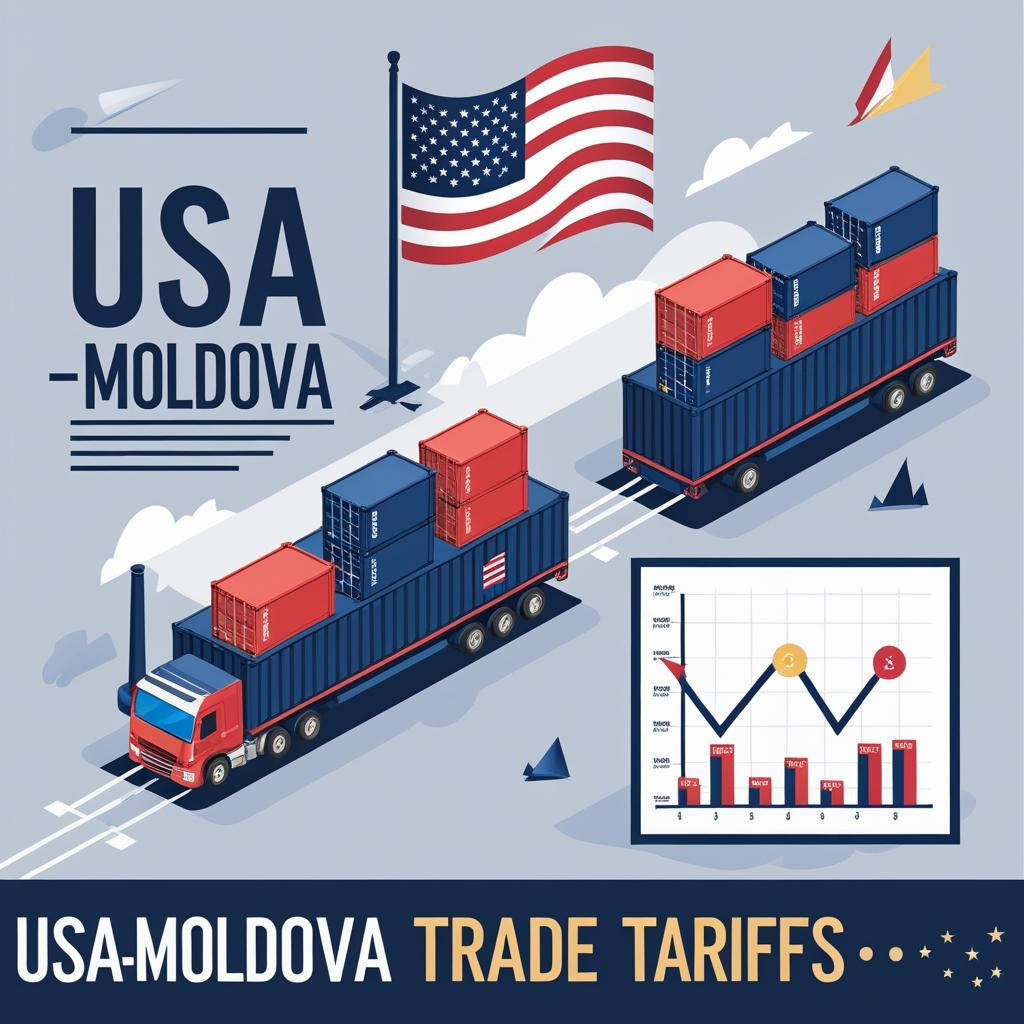
On 1 August 2025, the United States of America will begin applying a 25% tariff on all goods and services imported from the Republic of Moldova. This development was formally communicated by the White House in an official letter addressed to Ms Maia Sandu, President of the Republic of Moldova. While the announcement comes as a blow to Moldovan exporters, the current 25% rate represents a reduction from the initially proposed 31%—a small but significant improvement achieved through diplomatic engagement. Furthermore, the door remains open for further negotiations, particularly through a bilateral agreement that could help ease the burden on Moldovan businesses.
Though this may appear at first glance as a limited regional development, its implications are far-reaching, touching not only Moldova’s economic prospects but also the broader currents of global trade and geopolitical alignment.
The Global Picture: Tariffs as Economic Instruments
Tariffs have long been used by governments as tools to regulate trade flows, protect domestic industries, and exert geopolitical pressure. However, the ripple effects of such measures often transcend borders. In an era defined by integrated supply chains and interdependent economies, the imposition of a 25% tariff on Moldovan goods and services affects not only the Republic of Moldova but also its trading partners, logistics providers, international investors, and even American consumers.
For developing countries like Moldova, tariffs can be particularly damaging. Export-driven growth is often one of the few viable economic pathways, especially for smaller nations with limited internal markets. Increased costs make Moldovan goods less competitive on the American market, reducing demand and threatening jobs in key sectors such as agriculture, textiles, electronics, and information technology.
Bilateral Impact: USA–Moldova Trade Relations
Trade between the USA and Moldova has steadily grown over the past decade, although it remains modest compared to Moldova’s trade volumes with the EU. Nevertheless, the United States has been an important destination for Moldovan wines, textiles, honey, IT services, and niche agricultural products. Many Moldovan SMEs have come to rely on access to the American market, and any added costs due to tariffs will likely undermine these business relationships.
The good news is that Moldovan businesses that choose to operate directly within the United States—either by establishing a local branch or forming a joint venture—will be exempt from these tariffs. This opens up a critical opportunity for Moldovan investors and diaspora entrepreneurs who are able to shift parts of their operations to the U.S. Such an approach could not only avoid tariffs but also deepen Moldova’s economic footprint in the world’s largest economy.
Additionally, the reduction from 31% to 25% shows that sustained diplomatic dialogue is effective and meaningful. Moldova must now engage in proactive negotiations to further reduce or eliminate these tariffs, leveraging its role as a developing economy and its strategic partnership with the EU and other democratic allies.
Strategic Opportunity for Moldova
While the imposition of tariffs is unquestionably a challenge, it may also serve as a catalyst for Moldova to reposition itself strategically in the global economy. Foreign investors operating in countries currently facing higher tariff rates on exports to the USA may now look to Moldova as a cost-effective alternative for production. With its favourable tax regimes (including the highly competitive Moldova IT Park), skilled workforce, and geographical proximity to both the EU and CIS markets, Moldova could become a desirable base for export-focused businesses.
Moreover, Moldova’s political alignment with democratic values and its ongoing reforms make it a more reliable partner for Western investors. Rather than solely viewing the tariffs as a barrier, the Moldovan business community should also view this as a moment of re-evaluation and strategic diversification.
The Role of the Diaspora and MDBA
The Moldovan diaspora plays a crucial role in the country’s development and its connection to global markets. The Moldovan Diaspora Business Alliance (MDBA) is actively working to support entrepreneurs, investors, and trade professionals in navigating these challenging developments.
MDBA will continue to monitor the evolving situation regarding USA tariffs and is committed to providing timely information, expert insights, and practical support for those affected. Whether you are a Moldovan exporter, a diaspora investor, or a businessperson interested in Moldova as a destination for production, it is essential to stay informed and engaged.
We encourage all those interested in Moldova’s trade relations, investment opportunities, and diaspora-led business initiatives to subscribe to the MDBA Newsletter. By doing so, you will be among the first to receive updates on:
- Trade negotiations between Moldova and the USA;
- Sector-specific analysis on how tariffs may affect your business;
- Investment incentives and legal frameworks in Moldova;
- Opportunities for relocation, joint ventures, and tariff-exempt trade models;
- Upcoming events, trade missions, and webinars.
Subscribe now by emailing:
📧 moldovan.diaspora.uk@gmail.com
You can also click on the “Subscribe” button below. Your insight and involvement can make a meaningful difference for Moldova’s future.
Conclusion: Turning Challenge into Opportunity
The imposition of 25% tariffs by the USA is a wake-up call for Moldova to accelerate its efforts in securing favourable trade terms and promoting local production. At the same time, it presents a unique opportunity for Moldovan and foreign investors alike to reassess supply chains and explore Moldova as a resilient, resourceful, and ready trade partner.
Through proactive diplomacy, smart strategy, and strong diaspora engagement, Moldova can weather this challenge and emerge even more connected to the global economy. Let’s continue the dialogue—and build the future together.